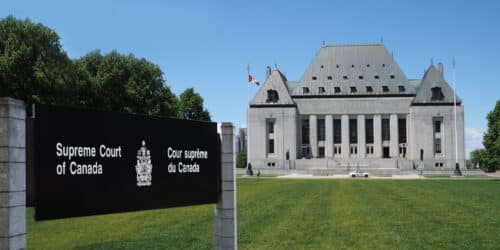Many people are familiar with the concept of being named the Estate Trustee (formerly known as an Executor) of an estate, but few are aware of the various statutory and common law obligations that come along with this responsibility. The Estate Trustee is the representative designated to carry out the terms of a last will and testament and is tasked with winding up the affairs of the deceased, paying taxes and bills and distributing the residue of the estate to those entitled.
One of the fundamental obligations of an Estate Trustee is to identify and protect the assets of the deceased’s estate. Careful consideration should be given as to who is tasked with this role, as covered in this earlier blog post.
The following list of duties taken on by an Estate Trustee may be helpful as a general point of reference:
- Locate and review will/codicil;
- Make proper funeral and burial arrangement;
- Determine the names and addresses of the beneficiaries of the estate;
- Arrange for a listing of the contents of all safety deposit boxes;
- Determine the full nature and value of the assets of the deceased, search for cash, securities, jewelry, and other valuables, and arrange for their safekeeping and compile an inventory of assets;
- Secure the deceased’s residence if it is not occupied and notify insurance company. Advise the police if it is not under proper supervision;
- Check for mortgages (and determine if they are life-insured) and agreements for sale, and make the payments to keep them up to date;
- Arrange for an immediate inventory of all personal effects and as necessary dispose of all furniture, etc. either in accordance with deceased’s instructions and if none, sell and add proceeds to estate funds;
- Check leases and tenancies, if any. Give tenants notice about where to send rent payments and give notice of termination if necessary;
- Check the insurance on the deceased’s assets (e.g., house, furniture, motor vehicle). Check the expiry dates and check the vacancy provisions to ensure that the coverage continues (a 30 day vacancy limit applies in most policies insuring residential property). Notify the insurers of the death;
- Cancel all credit cards and determine if any are life insured;
- Cancel phone, cable and digital accounts;
- Arrange for forwarding of mail;
- Review the last cheques written by the deceased to ensure that there were no irregularities;
- Advise all pension companies, including Canada Pension Plan and Old Age Security of the death and instruct the cancellation of any future payments; apply for pension benefits, including CPP death benefit;
- Search for insurance policies; some insurance policies have strict time limitations that you must comply with. Determine if any named beneficiary on life insurance policies and if a named beneficiary, advise that beneficiary and provide him/her with the policy; if estate named, contact company and determine its requirements for release of funds;
- Arrange for interim management of the deceased’s business;
- Collect and deposit any outstanding cheques (e.g., pensions, dividends, interest, salary);
- If requires, instruct your solicitor to prepare the application for the Certificate of Appointment of Estate Trustee (formerly probate) for your signature in the appropriate Court. If the deceased lived permanently in Ottawa, the application must be made to the Court in Ottawa, otherwise it must be made to the court in the jurisdiction where the deceased was ordinarily resident at time of death;
- If probate obtained, file Estate Information Return with the Minister of Finance within 90 days from the date the Certificate of Appointment of Estate Trustee is issued;
- Determine the debts owed by the deceased at the time of death and/or instruct your solicitor to advertise for creditors if you consider it necessary and arrange for payment of the debts;
- Arrange for the liquidation and/or transfer of the assets held in the deceased’s name, with the appropriate documentation provided to you by your solicitor and deposit estate funds to the estate bank account;
- Contest any debts if you are not satisfied as to their validity or legitimacy and settle any compromised claims;
- Prepare and file the necessary tax returns for the deceased in all relevant jurisdictions, pay the tax owing and obtain tax clearance and releases;
- Maintain proper accounts during the administration of the estate assets;
- Prepare a complete set of statements for all residual beneficiaries showing all dealings with the estate during the course of the administration and forward to the beneficiaries with the appropriate releases for their signatures and request for a return of the signed releases;
- Upon return of signed releases from all residual beneficiaries, distribute the assets of the estate according to the terms of the will;
- Instruct your solicitor to prepare the appropriate court documents for passing of accounts, if necessary;
- Retain any other expert you may decide upon with respect to the administration of this estate;
- Make all decisions as to the administration of the estate. As your solicitor, I am ready to advise on any matter that you may require and to offer assistance as it is needed. However, you cannot delegate to me or to any others the underlying responsibility for decision making.
Given the extensive duties that may be involved, we recommend that an Estate Trustee consult with a legal professional and retain a solicitor to advise in the administration of the estate before proceeding.
This blog post was written by Heather Austin-Skaret, a Partner in the Wills and Estates and Real Estate teams. She can be reached at 613-369-0356 or at Heather.Austin-Skaret@mannlawyers.com.








